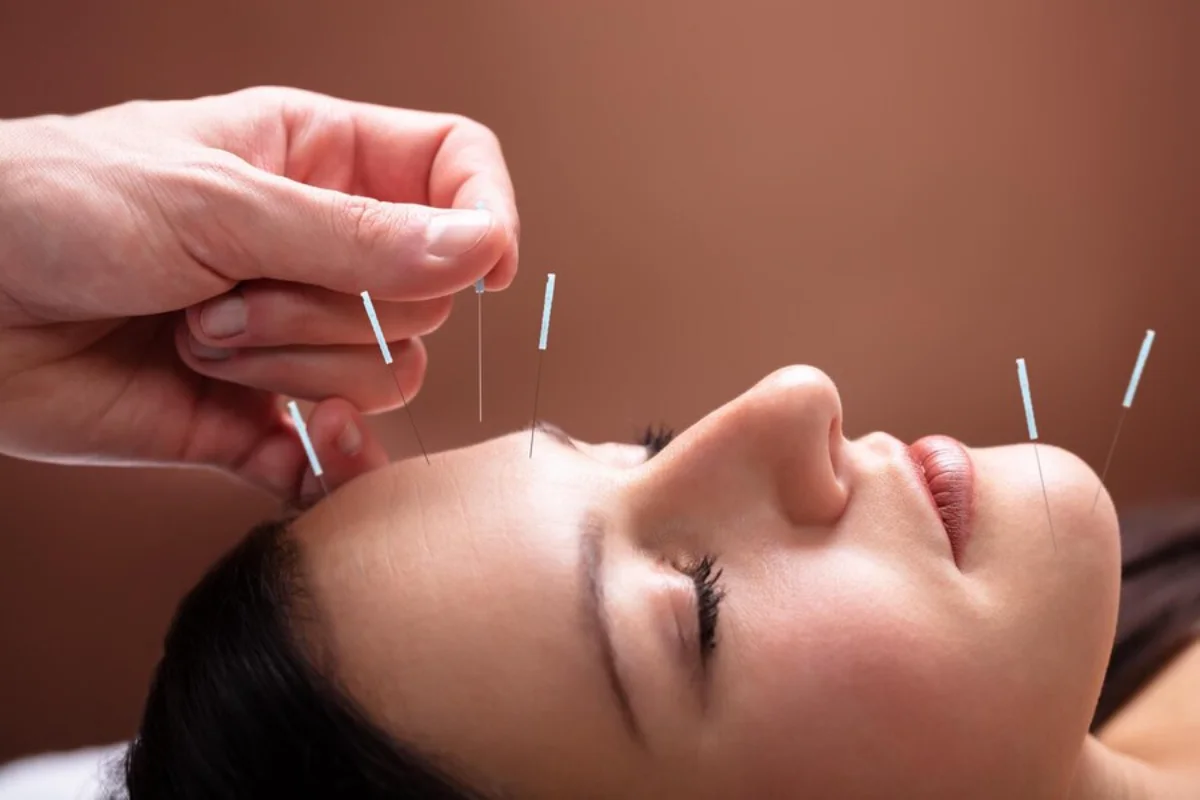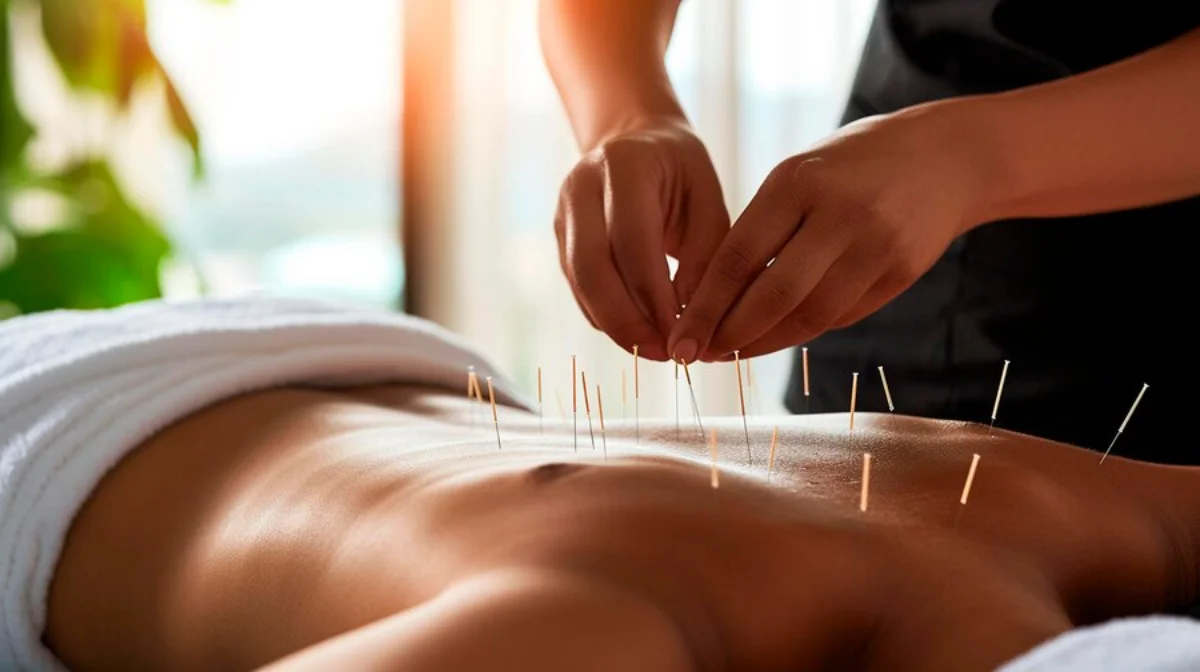
The Role of Acupuncture in Modern Wellness
Well-being is essential in the fast-paced world we live in today. This encourages many people to look for alternative, holistic methods to supplement conventional medicine. Acupuncture, based on traditional Chinese medicine, is one of the key players among these practices. Its far-reaching benefits are catching the eye of modern wellness. So, what’s acupuncture, and how is it relevant? This blog discusses the role of acupuncture in modern-day wellness, its benefits, mechanisms of action, and best uses within traditional Chinese medicine.
Acupuncture involves the insertion of thin needles into specific points in the body. It has been employed for centuries to enhance healing and equilibrium. While its origins date back thousands of years, acupuncture has evolved into a modern medical practice. This exploration seeks to dispel some of the mystery of acupuncture and showcase how it can enhance well-being today.

Key Benefits of Acupuncture
Enhancing Physical Health
Acupuncture is famous for helping with physical ailments. It can alleviate chronic pain and migraines when conventional treatments don’t work. It has been shown in studies to treat conditions including arthritis, back pain and fibromyalgia. By targeting particular points, acupuncture stimulates the release of endorphins, the body’s natural painkillers. This decreases discomfort and enhances physical health.
Promoting Mental Well-being
Acupuncture also promotes mental health. In a stressful society, anxiety and depression issues are prevalent. If you like a more holistic approach, acupuncture or Qi can balance the body’s energy. This balance can reduce stress, enhance mood, and provide a sense of calm.
Supporting Immune Function
Acupuncture strengthens and supports the immune system. It enhances the body’s natural defences, which helps prevent illness. Regular sessions may boost white blood cell production, which is crucial for battling infections. That’s what makes acupuncture so helpful for maintaining health over time and building resilience.
Complementing Traditional Medicine
Acupuncture is increasingly integrated into conventional treatments. Many healthcare providers now recognise its value in enhancing patient care. This blend allows patients to enjoy the best of both worlds, leading to better health outcomes.

How Acupuncture Works
Understanding the Basics
Acupuncture is based on Qi, the life force flowing through the body’s energy pathways. According to traditional Chinese medicine, illness arises from imbalances or blockages in Qi. Acupuncture aims to restore balance by stimulating specific acupoints along these pathways.
The Science Behind Acupuncture
While acupuncture’s roots are in Chinese medicine, modern science seeks to explain its effects. Research suggests it influences the nervous system, releasing neurotransmitters and hormones that regulate pain and mood. This scientific view bridges ancient practices with contemporary understanding, confirming acupuncture’s role in modern wellness.
The Process of Acupuncture
An acupuncture session starts with a consultation. The practitioner assesses the patient and identifies target acupoints. Needle insertion is precise and usually painless, with sessions lasting 20 to 40 minutes. Patients often feel relaxed and well during and after treatment, underscoring acupuncture’s holistic impact.

Best Uses for Traditional Chinese Medicine
Pain Management
Acupuncture is well-documented for pain management. It provides a natural alternative for chronic back pain, migraines, and menstrual cramps. Targeting specific acupoints reduces inflammation and improves circulation, making it an excellent option for pain relief.
Stress and Anxiety Reduction
In a stressful world, acupuncture offers calm. Balancing energy flow lowers stress hormones and encourages relaxation. This makes it practical for anxiety disorders, insomnia, and even PTSD, providing a holistic approach to mental wellness.
Fertility and Reproductive Health
Acupuncture is popular for fertility and reproductive health. Many individuals and couples use it to boost fertility, regulate menstrual cycles, and support pregnancy. By promoting hormonal balance and increasing blood flow to reproductive organs, acupuncture enhances conception chances and supports healthy pregnancies.
Enhancing Overall Well-being
Beyond specific issues, acupuncture improves overall well-being. Regular sessions can boost energy, improve sleep, and promote balance in the body, making acupuncture a valuable practice for those seeking to enhance their quality of life.
Additional Expert Tips & Common Mistakes to Avoid
Choosing a Qualified Practitioner
To maximise acupuncture benefits, choose a qualified practitioner. Look for a registered acupuncturist who follows professional standards. A skilled expert tailors treatments to your needs, ensuring safety and effectiveness.
Being Consistent with Treatments
Consistency is vital for acupuncture success. While some may feel immediate benefits, others need multiple sessions for results. Commit to a treatment plan and attend regular sessions to experience acupuncture’s advantages fully.
Avoiding Misconceptions
Misconceptions about acupuncture can deter people from trying it. A common myth is that acupuncture is painful. The needles are skinny, and most patients feel little to no discomfort. Additionally, with few side effects, acupuncture is safe when performed by qualified practitioners.
Advanced Insights & Expert Recommendations
Integrating Acupuncture with Lifestyle Changes
Combine acupuncture with lifestyle changes to boost its benefits. These can include a balanced diet, regular exercise, and mindfulness practices like meditation or yoga. These complementary activities support natural healing and overall wellness.
Exploring Acupuncture for Chronic Conditions
For those with chronic conditions, acupuncture offers a holistic management approach. Conditions like chronic fatigue syndrome, IBS, and autoimmune disorders may benefit from acupuncture’s energy-balancing properties.
The Future of Acupuncture in Wellness
But in brief, acupuncture is a core part of contemporary wellness, the holistic method of health. Whether aiding in pain management or offering mental health support, it acts as a natural substitute for conventional treatments. At a moment when millions are looking for ways to nurture their well-being, a more robust understanding of this ancient practice’s potential perks and machinations can help guide people’s health-related decisions.
Acupuncture has withstood the test of time, demonstrating the strength of traditional medicine in our quest for balance and harmony in life. Discover its ability, and start your mission to be fit and more vigorous. Whether it’s relief from issues of a physical or mental nature, acupuncture is a stepping stone to a healthier, more balanced life.